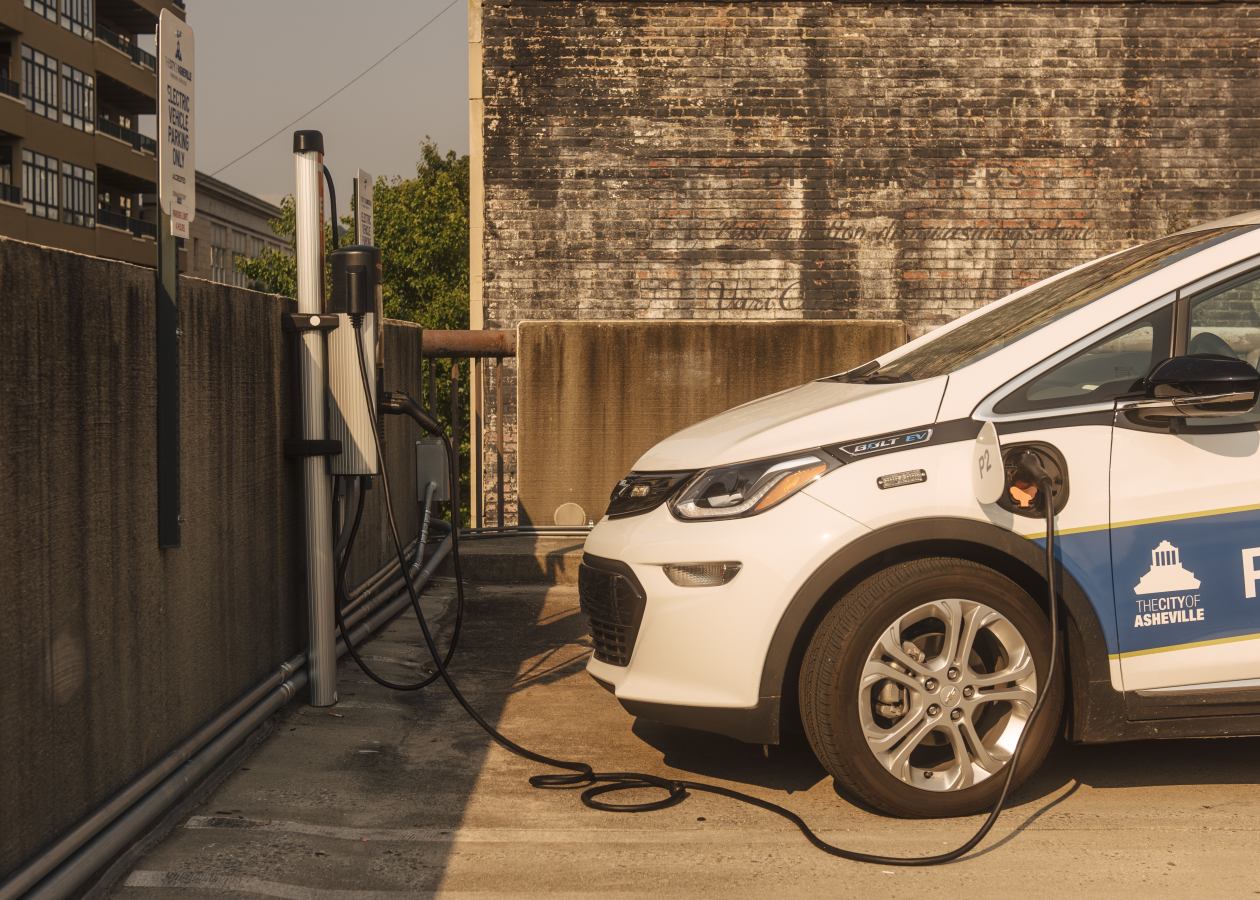Dealerships Renew Opposition To Government-Mandated EV Quotas

Table of Contents
Economic Viability Concerns for Dealerships
The transition to electric vehicles presents significant economic hurdles for dealerships, threatening their profitability and long-term sustainability. These challenges stem from several key factors:
High Initial Investment Costs
Implementing EV infrastructure requires considerable upfront investment. Dealerships face substantial costs associated with:
- High cost of installing charging stations: The expense of purchasing, installing, and maintaining a network of fast and reliable charging stations is significant, particularly for larger dealerships.
- Need for specialized EV technician training: Servicing electric vehicles requires specialized knowledge and training, necessitating investment in employee upskilling and potentially hiring new technicians.
- Lack of government subsidies for infrastructure development: While some government incentives exist, they often fall short of covering the complete cost of EV infrastructure development, leaving dealerships to shoulder a considerable financial burden.
Limited Consumer Demand in Certain Markets
The demand for electric vehicles is not uniform across all markets. Several factors contribute to this uneven adoption:
- Lower consumer demand in rural areas: The lack of adequate charging infrastructure in rural regions, coupled with range anxiety, significantly limits EV adoption in these areas.
- Higher price points of EVs compared to gasoline vehicles: The higher initial cost of electric vehicles remains a barrier for many consumers, particularly those on lower incomes.
- Concerns about range anxiety and charging infrastructure availability: The limited range of some EVs and the uneven distribution of charging stations create uncertainty and anxiety for potential buyers, hindering widespread adoption.
Impact on Profit Margins
EV mandates could severely impact dealerships' profitability. The current business model often relies on higher profit margins from the sale of gasoline vehicles:
- Reduced profit margins on EV sales: Dealerships frequently report lower profit margins on EV sales compared to traditional vehicles.
- Increased inventory costs due to unsold EVs: If demand doesn't match the mandated quotas, dealerships risk being stuck with unsold EVs, leading to increased inventory costs and potential financial losses.
- Potential for financial losses if quotas aren't met: Dealerships face penalties or other repercussions if they fail to meet government-mandated EV sales targets, potentially resulting in significant financial losses.
Practical Challenges in Implementing EV Quotas
Beyond the economic concerns, implementing EV quotas presents several practical challenges:
Supply Chain Issues and Inventory Management
The current global supply chain crisis poses a significant obstacle to meeting EV quotas:
- Delays in EV production: Production delays due to supply chain disruptions can make it difficult for dealerships to meet mandated sales targets.
- Component shortages: Shortages of crucial EV components, such as batteries and semiconductors, further exacerbate the challenges of maintaining adequate inventory levels.
- Difficulties in forecasting consumer demand for specific EV models: Accurate forecasting of consumer demand for various EV models is challenging, making it difficult to optimize inventory and avoid overstocking or shortages.
Lack of Consumer Education and Awareness
Addressing consumer misconceptions and anxieties about EVs is crucial for driving adoption:
- Addressing range anxiety: Educating consumers about the range of modern EVs and the expanding charging infrastructure is essential to alleviate range anxiety.
- Explaining charging infrastructure: Providing clear information about different charging options, their availability, and charging times is crucial for consumer confidence.
- Clarifying government incentives and rebates: Promoting available government incentives and rebates can make EVs more financially accessible to consumers.
Infrastructure Deficiencies
Insufficient charging infrastructure remains a significant barrier to widespread EV adoption:
- Insufficient public charging stations: The number of public charging stations, particularly fast-charging stations, remains inadequate in many areas.
- Uneven distribution of charging points across geographical areas: Charging infrastructure is often concentrated in urban areas, leaving rural regions underserved.
- Slow charging speeds in some areas: The slow charging speeds at some charging stations can deter consumers from adopting EVs.
Alternative Solutions and Policy Recommendations
Instead of imposing strict quotas, a more balanced and effective approach is needed:
Phased Approach to EV Adoption
A gradual implementation of EV targets allows the industry to adapt effectively:
- Setting incremental targets over a longer timeframe: This gives dealerships and manufacturers more time to adjust their operations and investments.
- Providing more support for infrastructure development: Increased government funding for charging infrastructure development is essential to support EV adoption.
- Incentivizing consumer adoption of EVs: Targeted consumer incentives can drive demand without relying on mandatory quotas.
Collaboration Between Government and Industry
Constructive dialogue and collaboration are crucial for finding mutually beneficial solutions:
- Establishing joint working groups: Collaboration between policymakers and industry stakeholders can lead to more effective policies.
- Sharing data and insights: Open communication and data sharing can help to develop more accurate forecasts and more effective policies.
- Developing mutually beneficial solutions: Collaborative efforts can lead to solutions that address both environmental and economic concerns.
Focus on Consumer Incentives
Increased consumer incentives can accelerate EV adoption without strict quotas:
- Tax credits: Offering tax credits for purchasing EVs can make them more affordable for consumers.
- Subsidies: Government subsidies can further reduce the cost of EV ownership.
- Rebates: Rebates for installing home charging stations can encourage EV adoption.
- Awareness campaigns: Public awareness campaigns can educate consumers about the benefits of EVs and address common concerns.
Conclusion: Finding a Balance Between Sustainability and Economic Viability
Government-mandated EV quotas present significant economic challenges and practical difficulties for car dealerships. The high upfront costs of infrastructure, limited consumer demand in certain markets, and the potential for reduced profit margins threaten the viability of many dealerships. A balanced approach is crucial, prioritizing sustainable transportation while ensuring the economic health of the automotive industry. Instead of rigid quotas, focusing on a phased approach, fostering collaboration between government and industry, and significantly increasing consumer incentives will create a more effective and sustainable transition to electric vehicles. Learn more about the debate surrounding electric vehicle mandates, contact your elected officials to voice your concerns regarding EV quotas, and advocate for more practical and collaborative solutions. Further research into government regulations affecting the automotive industry and electric vehicle adoption is highly encouraged.

Featured Posts
-
 Aaron Judge Open To Playing For Team Usa In 2026 World Baseball Classic
May 12, 2025
Aaron Judge Open To Playing For Team Usa In 2026 World Baseball Classic
May 12, 2025 -
 Deadly Milwaukee Apartment Fire Four Fatalities Hundreds Displaced
May 12, 2025
Deadly Milwaukee Apartment Fire Four Fatalities Hundreds Displaced
May 12, 2025 -
 De Onverwachte Schoonheid Nieuwe Foto Van Sylvester Stallones Dochter
May 12, 2025
De Onverwachte Schoonheid Nieuwe Foto Van Sylvester Stallones Dochter
May 12, 2025 -
 Is Thomas Mueller Leaving Bayern Munich Reactions From The Football World
May 12, 2025
Is Thomas Mueller Leaving Bayern Munich Reactions From The Football World
May 12, 2025 -
 Boston Celtics Playoff Success How Payton Pritchard Stepped Up In Game 1
May 12, 2025
Boston Celtics Playoff Success How Payton Pritchard Stepped Up In Game 1
May 12, 2025
